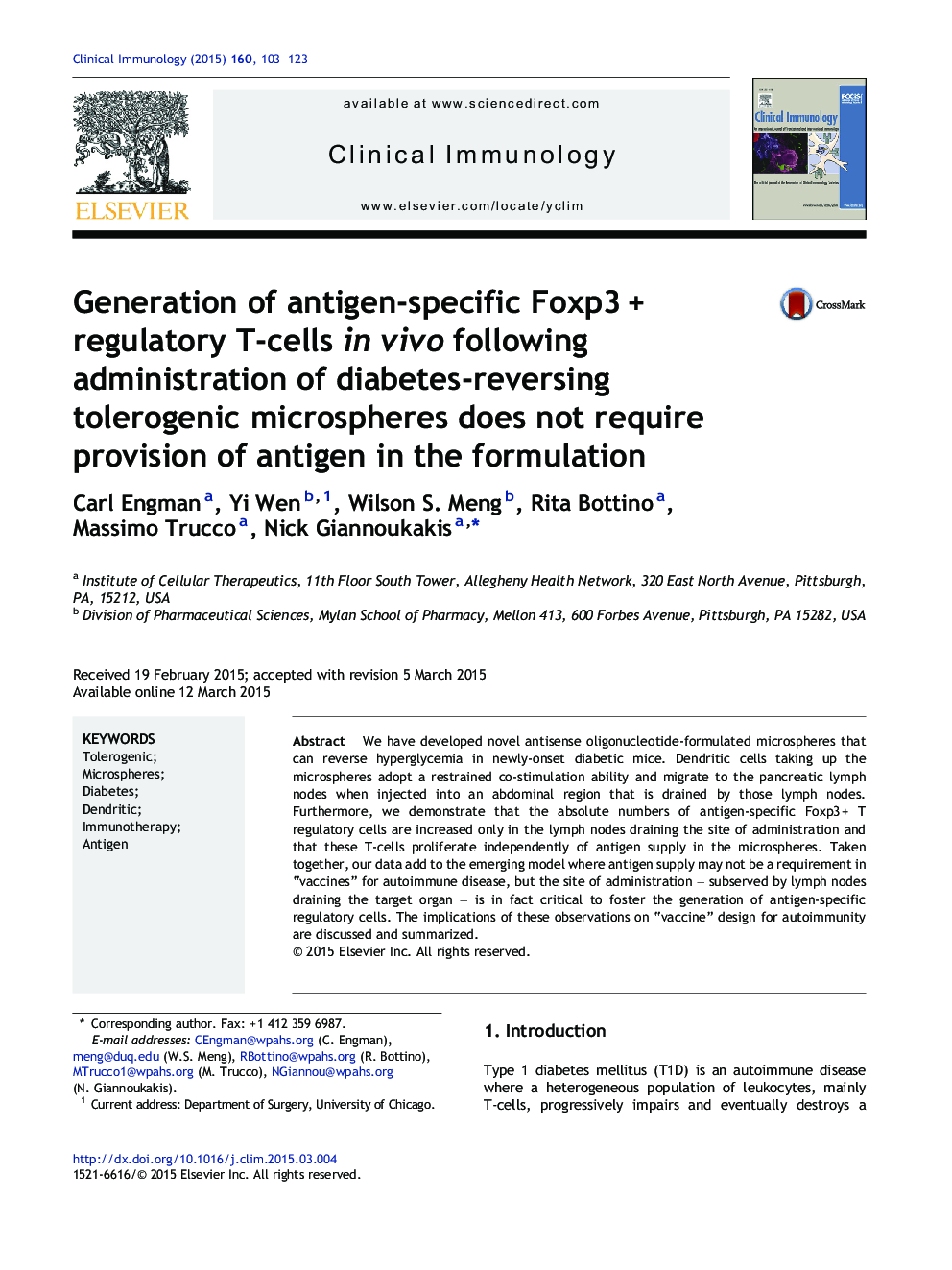| Article ID | Journal | Published Year | Pages | File Type |
|---|---|---|---|---|
| 3256834 | Clinical Immunology | 2015 | 21 Pages |
•To induce antigen-specific Tregs, antigen supply is not needed in “microsphere vaccines” targeting organ-specific autoimmunity.•Antigen-specific Foxp3 + Tregs include proliferating pre-existing as well as newly differentiated populations inside the lymph nodes draining the microsphere administration site.•DC capture the microspheres at the administration site and migrate into the lymph nodes where the antigen-specific Treg expansions occurs, independent of antigen provision in the formulation.
We have developed novel antisense oligonucleotide-formulated microspheres that can reverse hyperglycemia in newly-onset diabetic mice. Dendritic cells taking up the microspheres adopt a restrained co-stimulation ability and migrate to the pancreatic lymph nodes when injected into an abdominal region that is drained by those lymph nodes. Furthermore, we demonstrate that the absolute numbers of antigen-specific Foxp3 + T regulatory cells are increased only in the lymph nodes draining the site of administration and that these T-cells proliferate independently of antigen supply in the microspheres. Taken together, our data add to the emerging model where antigen supply may not be a requirement in “vaccines” for autoimmune disease, but the site of administration – subserved by lymph nodes draining the target organ – is in fact critical to foster the generation of antigen-specific regulatory cells. The implications of these observations on “vaccine” design for autoimmunity are discussed and summarized.
Graphical abstractProposed mechanism by which antigen specificity is acquired by dendritic cells taking up microspheres loaded with antisense oligonucleotides targeting the CD40, CD80, and CD86 primary transcripts.Figure optionsDownload full-size imageDownload high-quality image (205 K)Download as PowerPoint slide
